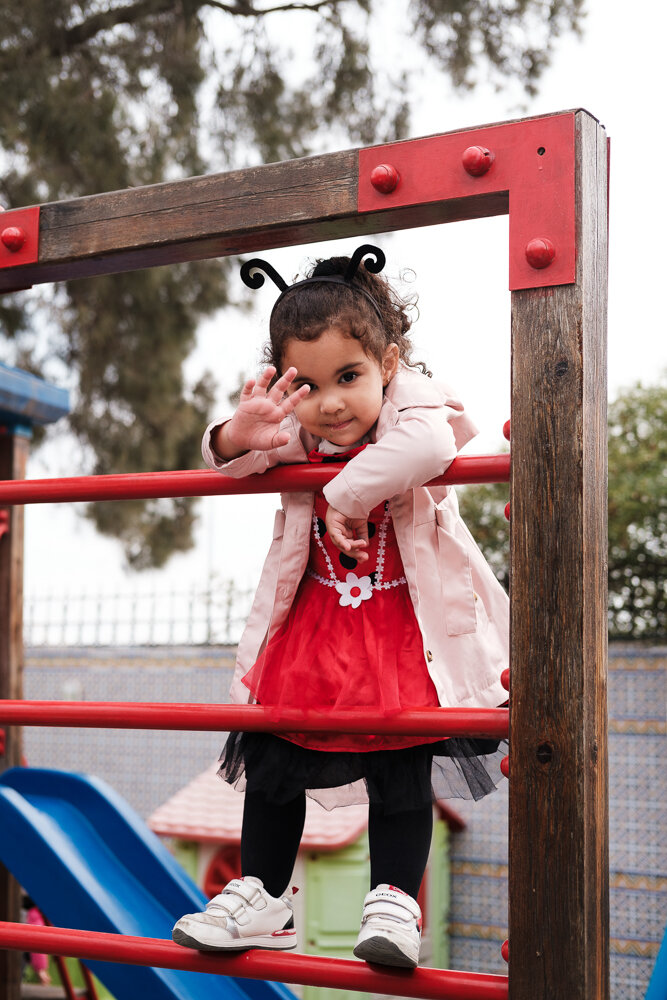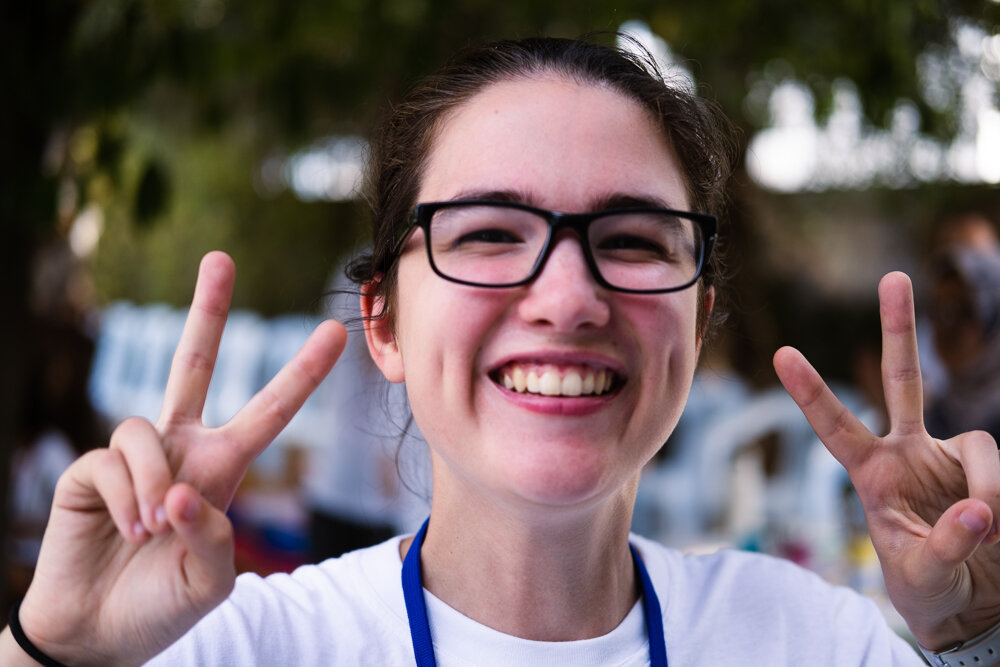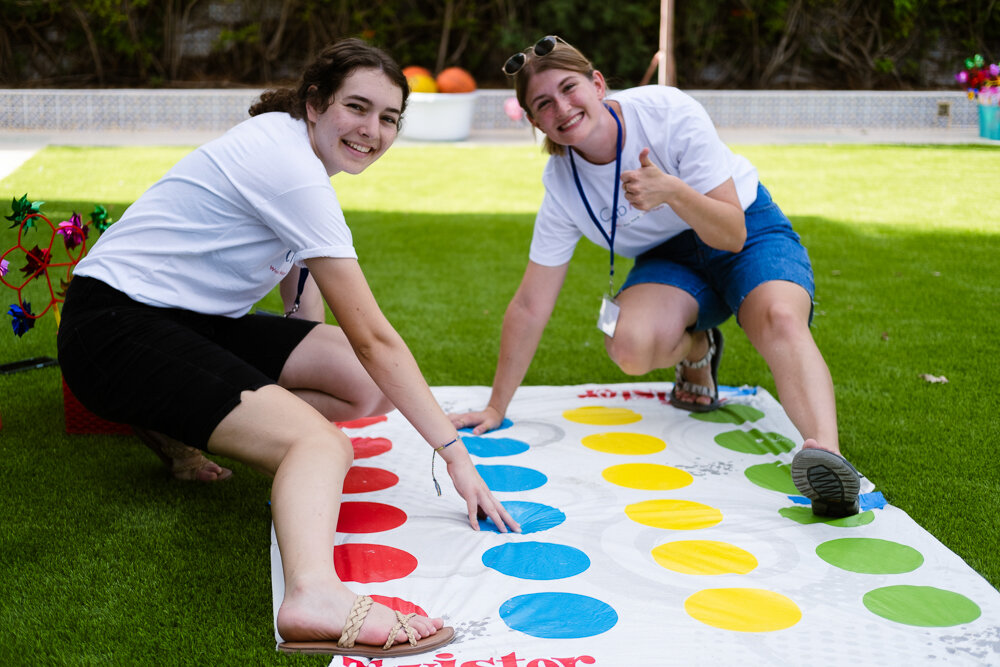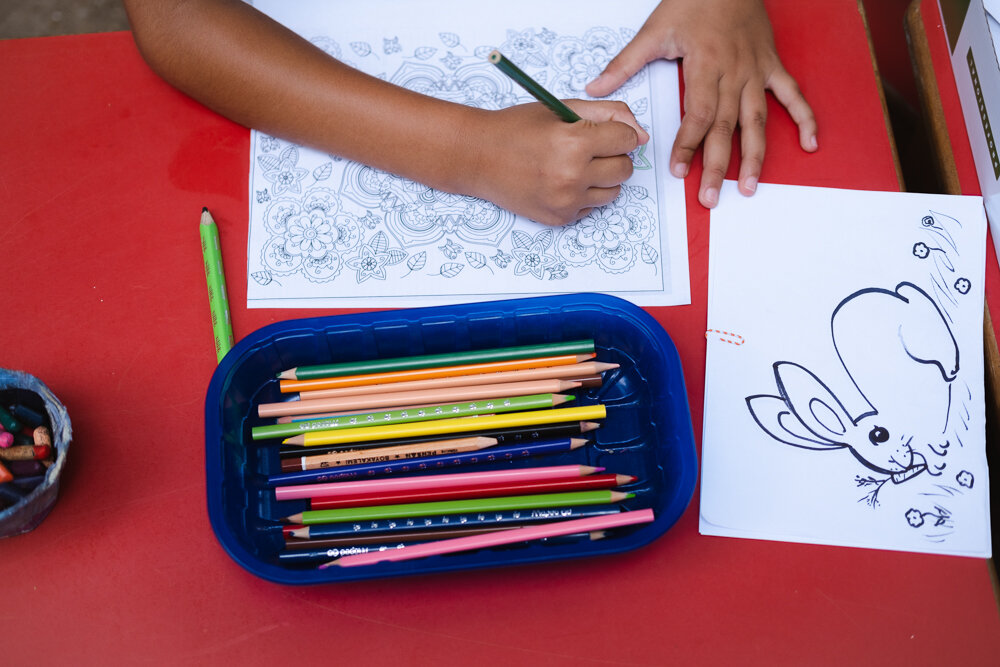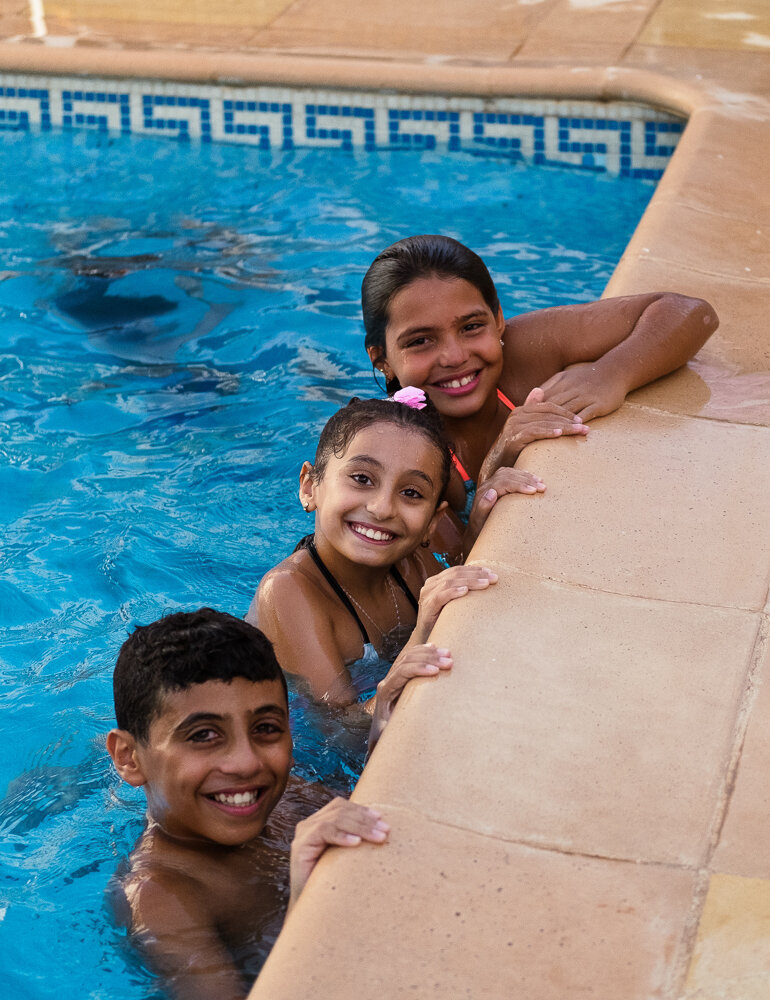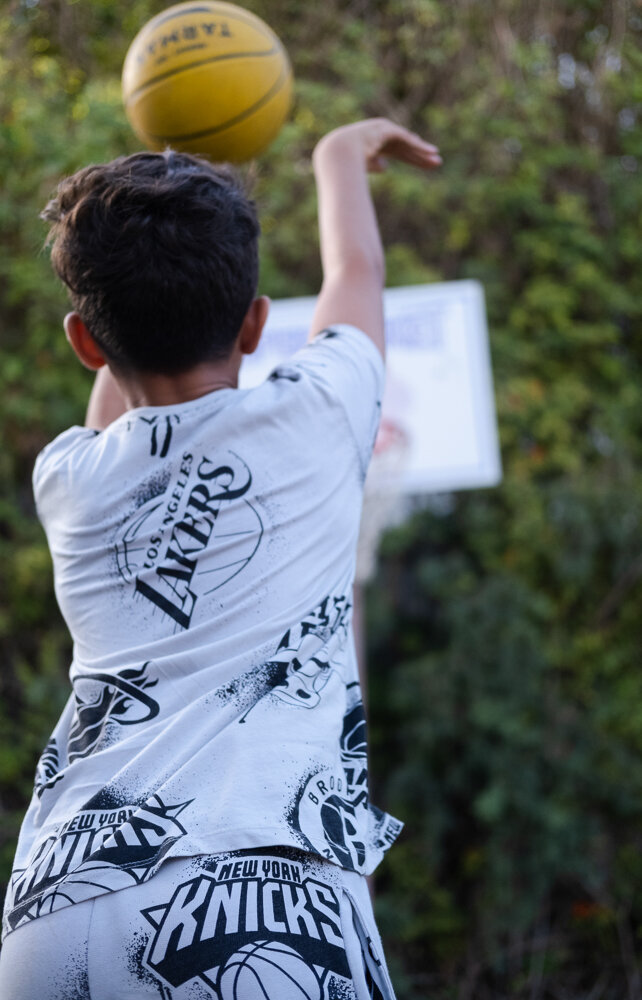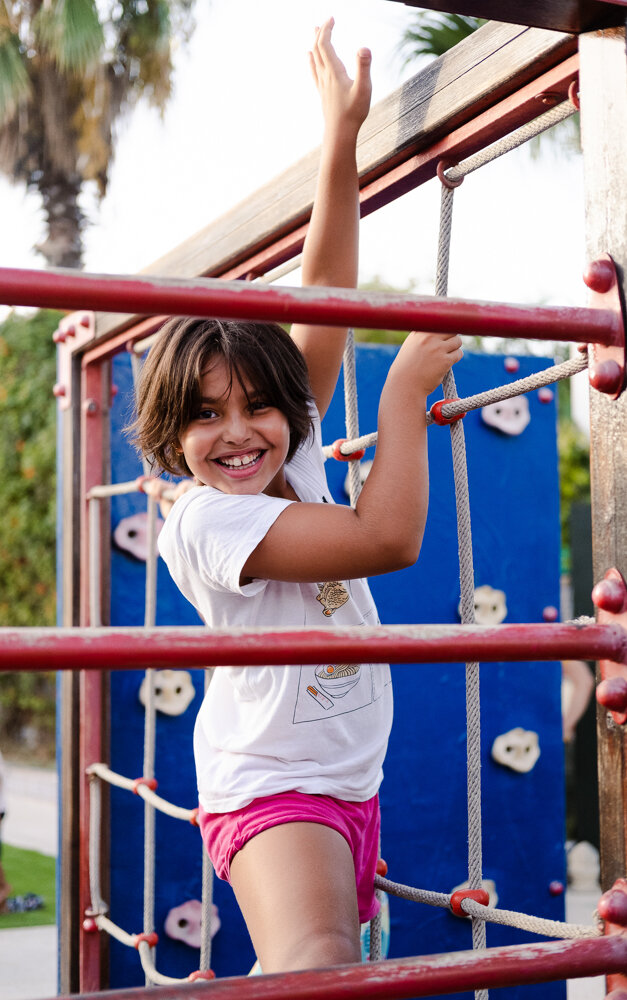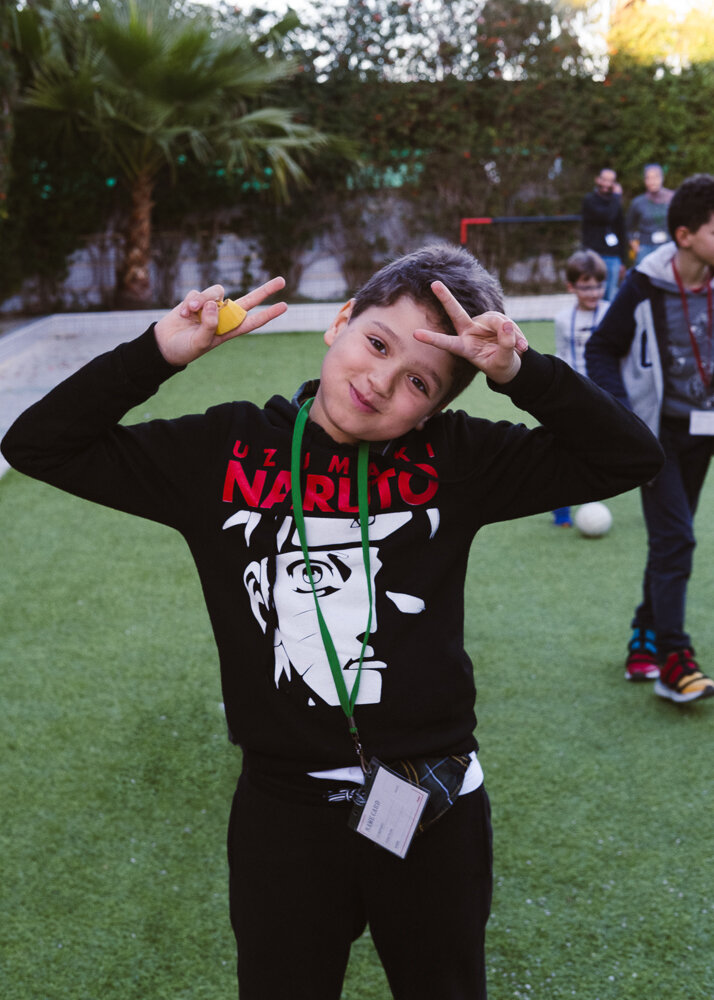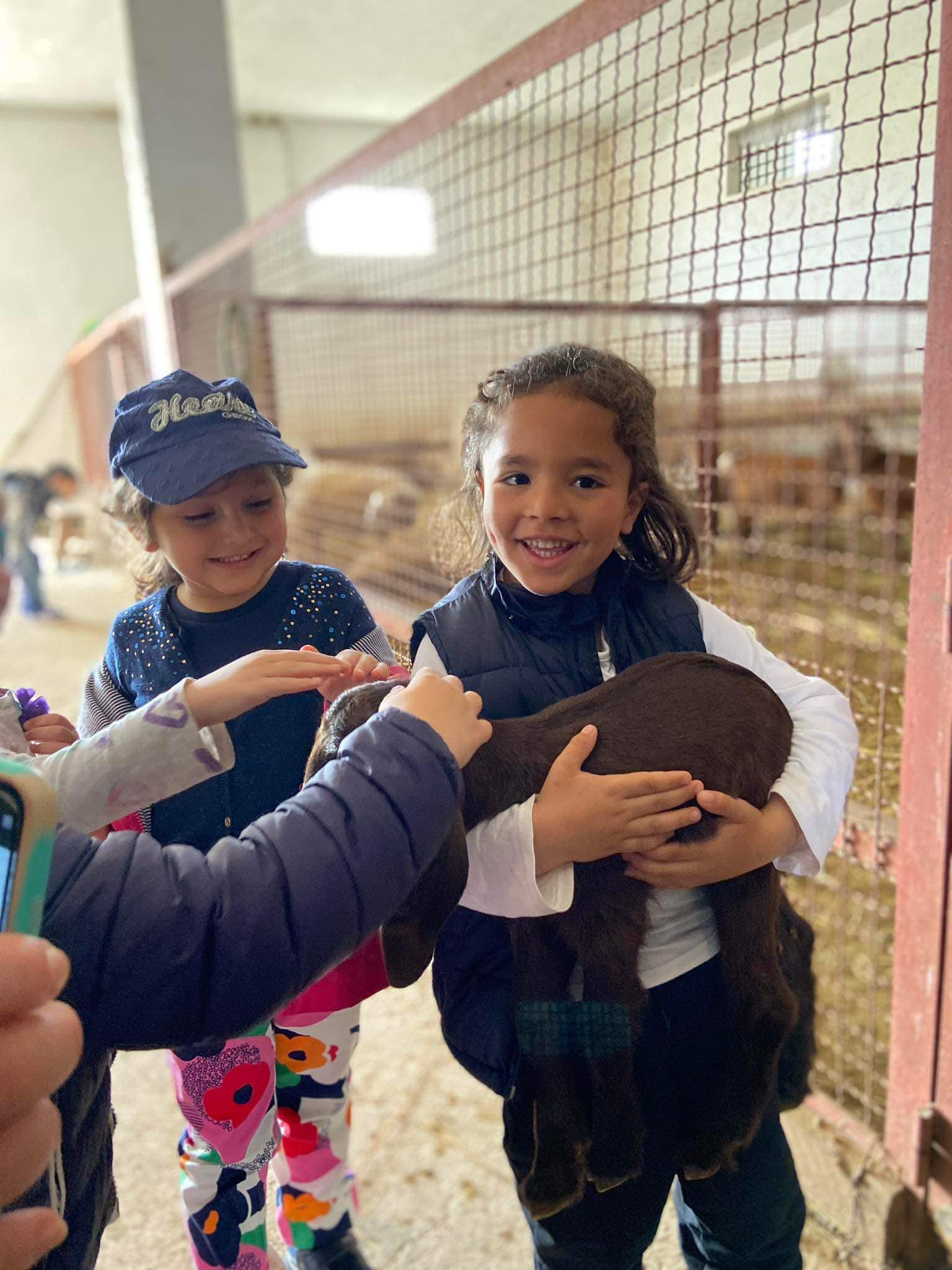
In PK4, we clearly outline classroom routines and expectations, which children at this age generally grasp quickly and follow as the year progresses. From the start, we emphasize a sense of self-confidence and responsibility by allowing students to care for their own well-being and by giving them jobs and roles in the class. It's natural for them to form close bonds with a few peers, and we support these special relationships while encouraging inclusivity. Social conflicts are a regular part of development, and we are always available to assist children in navigating and resolving these issues by teaching them the skills of negotiation and compromise. As friendships deepen and cooperative play becomes more intricate, we emphasize group activities, guide emotional regulation, and nurture empathy. Children increasingly recognize how their actions affect others and demonstrate growing empathy towards their peers.
In PK4, physical development is supported through gross motor activities like running, racing, jumping, climbing, choreographed dances, and yoga. Children learn about proximity, direction, and positional terms through interactive activities like navigating through obstacle courses and playing games that involve following directions such as "under," "over," "between,” and "beside." They can run smoothly, hop on one foot, and shoot and catch balls with more coordination. Their fine motor skills are refined through performing tasks such as making recognizable drawings, writing letters, cutting along lines with scissors, and building more complex structures with blocks and toys. They can also engage in craft activities that require fine manipulation, such as cutting, gluing, and assembling detailed models. They show increasing ability to manage buttons, snaps, and zippers, allowing them to be more independent in dressing themselves and using the facilities.
In PK4, we focus on developing literacy skills through engaging activities. Students interact with books individually and in groups, having the opportunity to lead read-aloud sessions further in the year. They explore storytelling with picture books and personal experiences to enhance comprehension and expression. We emphasize letter recognition, sound blending, and early writing skills. By the end of the year, students should identify, name, and write 11-20 capital and lowercase letters in random order, produce sounds for each letter, and generate words starting with specific letters. Activities include interactive read-alouds, letter-sound matching, vocabulary games, and name writing, all designed to support their literacy growth in a fun and supportive environment.
In PK4, mathematical development encompasses number concepts, spatial relationships, shapes, measurement, sequencing, and patterns. As the year progresses, students practice counting beyond 20, recognizing and naming teen numbers, and ordering a set of given numbers. They will begin to solve simple addition and subtraction problems using manipulatives like counters and number lines. They also engage in interactive math games. Students will learn to create sets of objects and describe their quantities as having more than, less than, or the same as other object sets. They will practice interpreting and creating simple graphs to represent and compare quantities of various animals, objects, pictures, and shapes. Additionally, students will start to compare measurements with greater accuracy, understanding concepts such as taller, shorter, heavier, and lighter. They will continue to explore 2D and 3D shapes, learning about their properties as well as associating shapes with objects around their environment. Pattern activities will become more complex, with children creating and identifying intricate patterns using various materials, which helps them understand and predict sequences. Students will become more familiar with the concept of time as they follow classroom schedules and daily routines, which will help them understand sequencing and the passage of time.
Information
- Age: 4 Years old - 5 Years old
- Time: 9:00AM - 4:00PM
- Class Size: 13
- Inscription Fees: 500 TD
- Monthly Fees: 950TD
